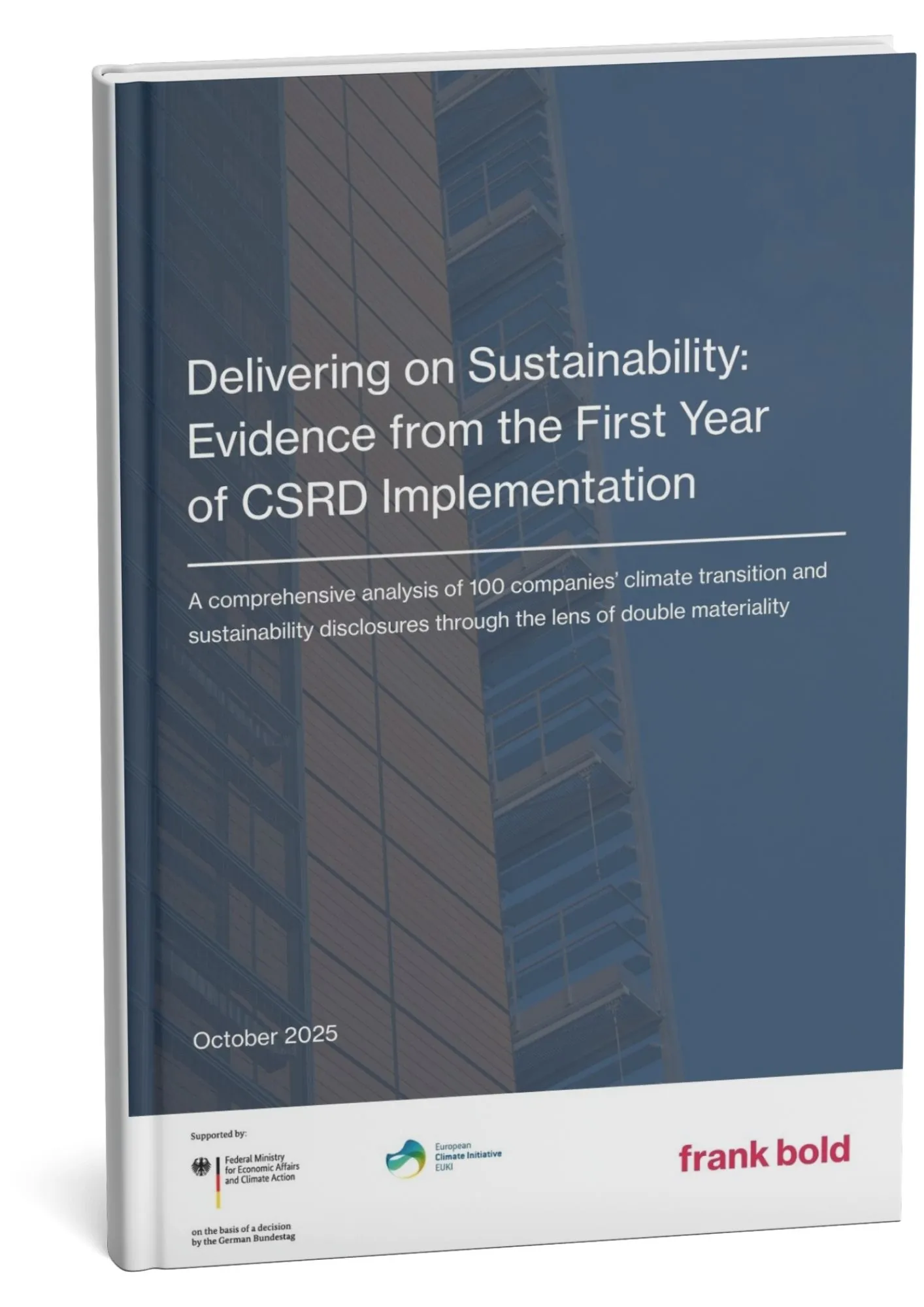"The ESG data in the annual reports will be a source of information for banks and investors who are required by law to monitor the ESG impacts of their investments. Together with other European Union tools such as the Taxonomy, the mandatory reporting of ESG data is intended to enable the allocation of money to green economy and sustainability, thus meeting the objectives of the Green Deal, " explains Filip Gregor, member of the EFRAG Sustainability Reporting Board and head of the ESG team at Frank Bold Advisory.
At the same time, in the climate area, if a company assesses, for example, that it does not have a significant impact on greenhouse gas emissions, it must provide a detailed explanation of the results of the materiality analysis. "Learning how to do materiality analysis properly will now be absolutely critical for companies. It cannot be done intuitively; the standards require very precise procedures and specific information. That is why we at EFRAG are now working on a guide that will take companies through the analysis process," adds Filip Gregor of Frank Bold Advisory.
"The deferral gives companies time to set up or modify existing reporting policies and processes so that they can then meet the detailed requirements of the standards on the form and content of ESG disclosures, known as datapoints. In this regard, it is important to note that compliance with the requirements of the standards is subject to audit," says Gregor.
The preparation of the guide included an analysis of the readiness of the largest Czech companies for mandatory ESG reporting. It shows that most of them significantly underestimate the onset of ESG regulations and do not prepare for them. This carries the risk that these companies will not be able to react in time and take advantage of the opportunities that ESG reporting will bring, for example, so-called green financing.

Discover how European companies are managing ESG reporting. The new study by Frank Bold’s Responsible Companies team summarizes the first wave of sustainability reports from one hundred major European companies and shows that reporting under the CSRD provides valuable data for decision-making and is becoming an effective tool for risk management. Publication is part of the European Climate Initiative (EUKI) of the German Federal Ministry for Economic Affairs and Climate Action (BMWK).

Comprehensive Sustainability Report aligned with CSRD.
.webp)
A simplified ESG report for your business partners.

Mapped according to GHG Protocol Product Standard.

We are part of the Frank Bold Expert Group
Copyright ©
Aktuální rok script
Frank Bold